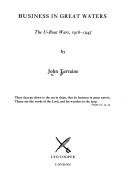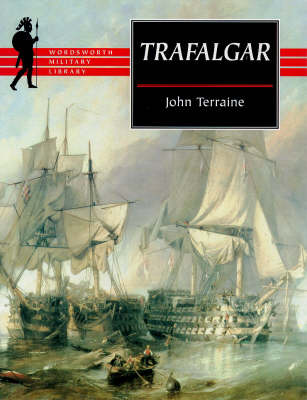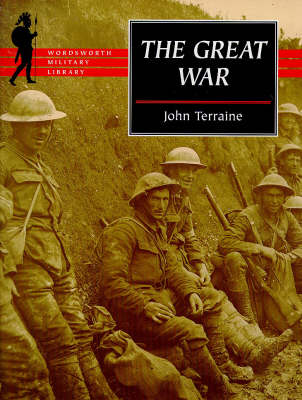Wordsworth Military Library
5 total works
In the history of the British Army, Mons takes its place beside Dunkirk and Corunna. All three were initial defeats, saved from disaster by the courage of the soldiers and the skill of some of the commanders in the field. In the context of the whole war, Mons was a small-scale affair, but its importance was crucial, partly because this was the first time for close on 100 years that a British Army had been engaged in warfare on the continent and partly because the army passed straight from the dejection of retreat to the exhilaration of the Battle of the Marne.
The distinguished military historian here studies the two unrestricted U-Boat wars of 1916-1918 and 1939-1945.
This text describes the RAF during the European war of 1939-1945. John Terraine shows how the RAF, which in 1939 was small and inadequate for the task it was called upon to perform, had, by the end of the war, taken up its position on the right of line, the vanguard position of honour.
An illustrated book describing the most famous battles of all time, which shattered Napoleon's dreams of invading England. Amplifying the accounts of the battle is a lengthy selection of contemporary eye-witness accounts. It is not just the story of the morning and afternoon in which Nelson and Collingwood smashed the combined fleets of France and Spain, but also that of a complex campaign of which Trafalgar was the climax. It shows that the protagonists were not Admirals Villeneuve and Nelson, but Napoleon and the British naval tradition.
From the fatal shots that killed Archduke Franz Ferdinand in Sarajevo on June 28th 1914 to the armistice at 11am on the 11th day of the 11th month of 1918, this account traces the progress of World War I in 15 chapters. John Terraine exmaines it in its entirety, from the Battle of Tannenburg to Galliopli, from East Africa to the Western Front. Naval battles and airpower also receive attention.



